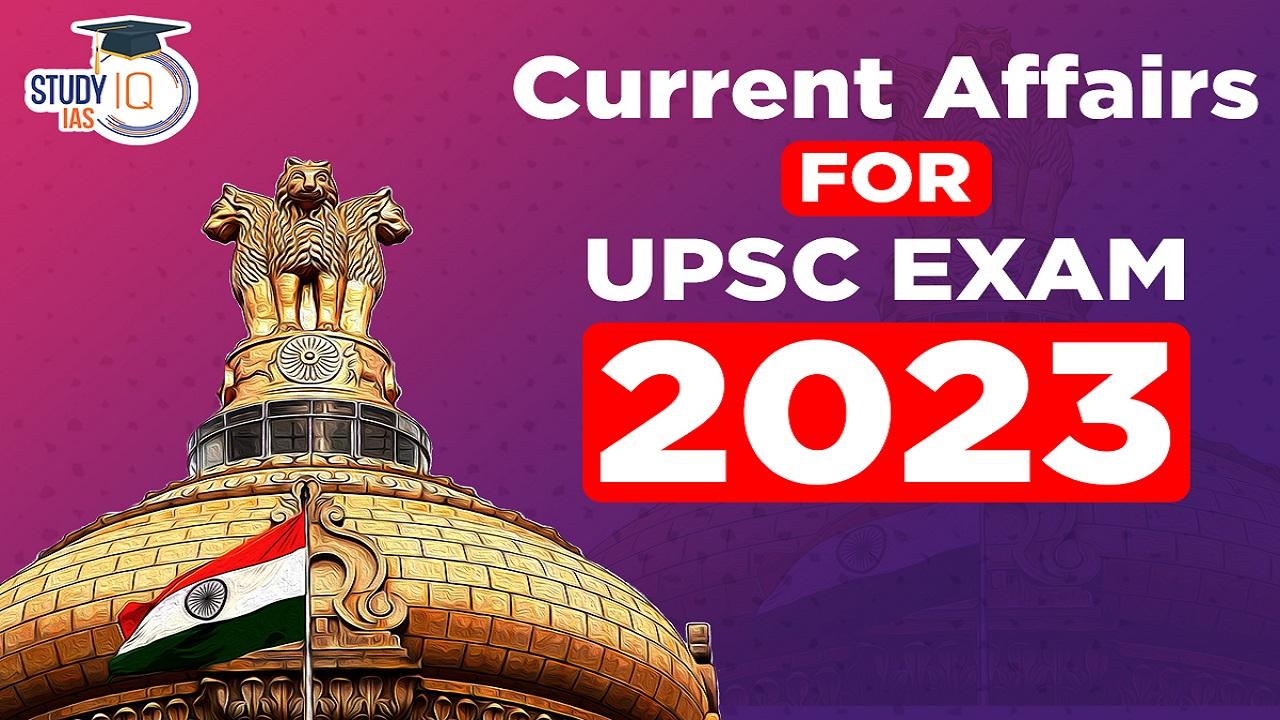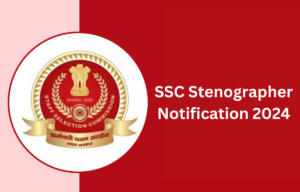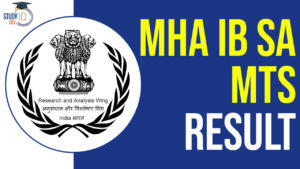Table of Contents
Current Affairs 22nd September 2023 for UPSC Prelims Exam
SEBI Eases Borrowing Norms for Large Corporates
Context: The Securities Exchange Board of India (SEBI) has brought new norms for large corporates to provide them with more flexibility on borrowing from the debt market.
Who are Large Corporates?
- At present, large corporates refer to companies that have an outstanding loan of Rs 100 crore or above, with a credit rating of ‘AA’, and have their debt securities listed on a stock exchange.
Key Highlights of the SEBI’s New Norms for Large Corporates
- Higher Monetary Threshold: SEBI has increased the monetary threshold for defining large corporates to Rs. 500 crores from the current level of Rs. 100 crores.
- This means that fewer companies will now be classified as large corporates and be subject to the borrowing norms.
- Removal of penalty for non-compliance: SEBI has removed the penalty of 0.2% on large corporates that do not meet the mandate of raising at least 25% of their incremental borrowings from the debt market.
- Instead, SEBI will now introduce a system based on “incentives and moderated disincentives”.
- Filing Requirement: The requirement for large corporates to file a statement identifying themselves as a large corporate has been dispensed with.
- This simplifies the reporting process for these companies.
About the Securities Exchange Board of India (SEBI)
- A statutory body in accordance with the Securities and Exchange Board of India Act, 1992.
- It is the regulatory authority for primary market, secondary market, mutual funds and foreign institutional investment in India.
- Aim: To protect the interests of investors in securities and to promote the development of, and regulate the securities market.
- Headquarters: Mumbai and four regional offices in New Delhi, Kolkata, Chennai, and Ahmedabad.
- Governed by: a nine-member board, which is headed by a chairman. The chairman and other members of the board are appointed by the Central Government of India.
- Power and Functions:
- It is a quasi-legislative and quasi-judicial body that can draft regulations, conduct inquiries, pass rulings, and impose penalties.
- Protecting the interests of Indian investors in the securities market and promote its development.
- SEBI also regulates the tasks entrusted to depositors, credit rating agencies, custodians of securities, foreign portfolio investors, and other participants.
- It educates investors about securities markets and their intermediaries.
- It prohibits fraudulent and unfair trade practices within the securities market and related to it.
- The Securities Appellate Tribunal (SAT) is the appellate tribunal for orders passed by the SEBI.
- SAT is also a statutory body established under the provisions of the Securities and Exchange Board of India Act, 1992.
- SAT consists of a Presiding Officer and two other Members. It has the same powers as vested in a civil court.
Current Affairs 21st September 2023 for UPSC Prelims Exam
Telecom Regulatory Authority of India (TRAI)
Context: The TRAI has released a draft outline for National Broadcasting Policy.
More on News
- TRAI is initiating a National Broadcasting Policy for providing a common approach for licences, oversight, and compliances.
- The proposed policy may include:
- promoting content production in India that promotes Indian culture
- expanding institutional capacity
- promoting research
- Adopting a “coherent and modernized approach” to legacy mediums like print, radio and television, as well as for digital media, such as streaming services.
About Telecom Regulatory Authority of India (TRAI)
- TRAI: It is a statutory body established in 1997 through the Telecom Regulatory Authority of India Act, 1997.
- Aim: To regulate telecom services, including fixation/revision of tariffs for telecom services.
- Composition:
- Members: Chairperson, two whole-time members and two part-time members, all of which are appointed by the Government of India.
- Chairperson: Has the powers of general superintendence.
- He/ She presides over the meetings of the TRAI.
- Tenure: The chairperson and the members of TRAI are appointed for three years or until they attain the age of 65 years, whichever is earlier.
- Removal of Members: The Central Government is empowered to remove any member of the TRAI, if he/she:
- has been adjudged an insolvent
- has been convicted of an offence which involves moral turpitude
- has become physically or mentally incapable of acting as a member
- has abused his/her position, rendering his/her continuance in office prejudicial to the public interest.
- Government Control over TRAI:
- TRAI is not a completely independent telecom regulator.
- Under section 25 of the Act, the government has the power to issue directions which are binding on TRAI.
- The TRAI is also funded by the Central Government.
- Functions & Recommendations: The function of the TRAI is to make recommendations on the following matters:
- Need for introduction of new service provider.
- Revocation of licence for non-compliance of terms and conditions of licence.
- Measures to facilitate competition and promote efficiency in the operation of telecommunication services to facilitate their growth.
- Technological improvements in the services provided by the service providers.
The TRAI is responsible for discharging the following functions:
- Ensuring the compliance of terms and conditions of licence.
- Ensuring the technical compatibility and effective interconnection between different service providers.
- Laying down the standards of quality of service to be provided by the service providers.
- Ensuring the quality of service and conducting the periodical surveys of such services.
- Non-Binding Recommendations: The recommendations of the TRAI are not binding upon the Central Government.
- Headquarters: Delhi .
- The TRAI Act was amended in 2000, establishing a Telecom Disputes Settlement and Appellate Tribunal (TDSAT).
Telecom Disputes Settlement and Appellate Tribunal (TDSAT):
- It was set up to adjudicate any dispute between a licensor and a licensee, between two or more service providers, between a service provider and a group of consumers, and to hear and dispose of appeals against any direction, decision or order of TRAI.
- Composition:
- The Tribunal consists of a chairperson and two Members appointed by the Central Government.
- The Chairperson should be or should have been a Judge of the Supreme Court or the Chief Justice of a High Court.
- A Member should have held the post of Secretary to the Government of India or any equivalent post in the Central Government or the State Government for a period of not less than two years or a person who is well versed in the field of technology, telecommunication, industry, commerce or administration.
Legislative Privileges
Context: The Supreme Court is considering overturning a 25-year-old precedent that grants immunity to legislators from criminal prosecution on bribery charges for any speech or vote in Parliament.
More on News:
- Articles 105(2) and 194(2) of the Indian Constitution state that members of Parliament and state legislatures shall not be liable to any proceedings in any court in respect of anything said or any vote given by them in the House or any committee thereof.
- In 1998, the Supreme Court interpreted these articles to mean that legislators also have immunity from prosecution for bribery charges that are related to their speeches or votes in Parliament.
- This was based on the reasoning that legislators need to be able to speak and vote freely without fear of being prosecuted.
- However, the Supreme Court has now decided to reconsider this precedent. This is because there is growing concern that the immunity granted to legislators is being misused, and that it is allowing corrupt legislators to escape justice.
What are Legislative Privileges?
- Legislative Privileges are special rights and immunities enjoyed by the legislators for effective discharge of their legislative functions.
- These privileges are modelled on the Privilege Pattern of the British Parliament.
- Constitutional provisions: Article 105 and Article 194 of the Indian Constitution lay down the powers, privileges and immunities of Members of Parliament (MPs) and State Assemblies respectively.
- Beyond these provisions, the Constitution gives the Legislature the right to define by law their powers and privileges.
- No law has so far been enacted by Parliament (and State Legislatures) in this regard.
- These privileges are considered as special provisions and have an overriding effect in conflict.
- The Constitution has also extended these privileges to those persons who are entitled to speak and take part in the proceedings of a House or any of its committees. For example, the Attorney General of India.
- However, these privileges do not extend to the President (or Governor) who is also an integral part of the Parliament (or state legislature).
- Beyond these provisions, the Constitution gives the Legislature the right to define by law their powers and privileges.
- Sources of legislative privileges in India:
- Constitutional provisions,
- Various laws made by Parliament,
- Rules of both the Houses,
- Parliamentary conventions,
- Judicial interpretations.
List of Privileges Enjoyed by the Members of Legislature
The following privileges are available to members of Parliament and members of State Legislatures:
- Freedom of Speech Article 105(1) and Article 194(1): This means that members of Parliament and State Legislatures cannot be held liable for anything they say or vote on in their respective Houses.
- Freedom of publication of proceedings Article 105(2) and Article 194(2): This means that, the members of the Houses cannot be made liable if they publish any proceedings of the House under the Authority of the House.
- The Parliament has also enacted the Parliamentary Proceedings Act, 1956 for this purpose.
- Freedom from Arrest: Any member of the House cannot be arrested in a civil proceeding within 40 days before and after the session of the House. If he is arrested, he must be released to let him attend the Session.
- But a member can be arrested in a criminal proceeding, but the detaining authority must notify the House the reason, time, place of his detention.
- Right to exclude strangers: When a secret sitting is going on the presiding officer of the house to order the strangers to withdraw from the chamber, lobby. (Rule 248 Lok Sabha)
- Right to Prohibit the Publication of proceedings: The presiding officer of the house may declare that a certain part of the proceedings is not to be published. Any person doing so may be punished under the Contempt of house as per as the rules made by the house.
- Right to regulate internal proceedings: The Houses have the power to make rules to regulate their proceedings. No one can interfere in that even the judiciary.
- Article 122 and 212 provides that the validity of proceedings cannot be called in question on ground of any irregularity.
- Right to punish for contempt of the House: If any person either the member or a non-member breaks any rule of the house, he may be punished according. For example, a member may be expelled from the House.
Privileges and Fundamental Rights – Which will have supremacy?
- In Gunpathi K. Reddi v. Nafisul Hasan, the Supreme Court held that Articles 105 and 194 are subject to Fundamental rights contained in Part III of the Constitution.
- But in M.S.M Sharma v. S.K. Sinha, the Supreme Court held that in case of conflict between Fundamental Rights under 19(1) (a) and Article 105 (Article 194), the latter would have primacy.
- But this is not a strict rule and applicable in all cases that Privileges would prevail over the fundamental rights. The decision in M.S.M case is only for Article 19(1)(a).
National Commission for Minorities
Context: A delegation representing the Christian Community met with the Chairman of the National Commission for Minorities expressing their concerns regarding false accusations of forced religious conversion and attacks on churches in Manipur.
About National Commission for Minorities (NCM):
- In 1978, setting up of the Minorities Commission was envisaged in the Ministry of Home Affairs Resolution.
- In 1984, the Minorities Commission was detached from the Ministry of Home Affairs and placed under the newly created Ministry of Welfare, which excluded linguistic minorities from the Commission’s jurisdiction in 1988.
- In 1992, with the enactment of the National Commission for Minorities Act, 1992, the Minorities Commission became a statutory body and was renamed as the National Commission for Minorities.
- In 1993, the first Statutory National Commission was set up and five religious communities-the Muslims, Christians, Sikhs, Buddhists and Zoroastrians (Parsis) were notified as minority communities.
- In 2014, Jains were also notified as a minority community.
Composition:
- NCM consists of a Chairperson, a Vice-Chairperson and five members and all of them shall be from amongst the minority communities.
- Total of 7 persons to be nominated by the Central Government should be from amongst persons of eminence, ability and integrity.
- Tenure: Each Member holds office for a period of three years from the date of assumption of office.
- Removal: The Central Government may by order remove the Chairperson or any other Members from the office if the Chairperson other Member:
- Is adjudged insolvent.
- Engages during his term of office in any paid employment outside the duties of his office.
- Refuses to act or becomes incapable of acting.
- Is of unsound mind and stands so declared by a competent court.
- Has abused his office to render his continuance in office detrimental to the public interest.
- Is convicted and sentenced to imprisonment for an offense, which in the opinion of the Central Government, involves moral turpitude.
- Functions:
- Evaluation of the progress of the development of minorities under the Union and States.
- Monitoring of the working of the safeguards for minorities provided in the Constitution and in laws enacted by Parliament and the State Legislatures.
- Making recommendations for the effective implementation of safeguards for the protection of the interests of minorities by the Central Government or the State Governments.
- Looking into specific complaints regarding deprivation of rights and safeguards of minorities and taking up such matters with the appropriate authorities.
- Conducting studies, research, and analysis on the issues relating to the socio-economic and educational development of minorities.
- Suggest appropriate measures in respect of any minority to be undertaken by the Central Government or the State Governments.
- Making periodical or special reports to the Central Government or any matter pertaining to minorities and, in particular, the difficulties confronted by them.
Powers:
The Commission, while investigating, shall have all the powers of a Civil court in respect of the following matters:
- Summoning and enforcing the attendance of any person from any part of India and examining him/her on oath.
- Requiring the discovery and production of any document.
- Receiving evidence on affidavits.
- Requisitioning any public record or copy thereof from any court or office.
- Issuing commissions for the examination of witnesses and documents.
| Provision | Feature |
| Article 29 | Protection of interests of minorities.
|
| Article 30 | Right of minorities to establish and administer educational institutions.
|
| Article 347 | Special provision relating to the language spoken by a section of the population of any State. |
| Article 350 | Provision for a Special Officer for Linguistic Minorities and his duties. |
| Article 350 A | Provision for facilities for instruction in mother-tongue at the primary stage. |
UN Security Council
Context: The President of Ukraine, in a recent address to the UN Security Council, strongly criticized Russia’s invasion of Ukraine, labelling it as a criminal action, and urged the United Nations to consider revoking Russia’s veto authority.
About UN Security Council
- The Security Council was established by the UN Charter in 1945. It is one of the six main organs of the United Nations.
- Objective: The Security Council has primary responsibility for the maintenance of international peace and security.
- Functions:
- to investigate any dispute or situation which might lead to international friction;
- to formulate plans for the establishment of a system to regulate armaments;
- to determine the existence of a threat to the peace or act of aggression and to recommend what action should be taken;
- apply economic sanctions and other measures not involving the use of force to prevent or stop aggression;
- to take military action against an aggressor.
- Power: The Security Council is empowered to impose binding obligations on the UN member states for maintaining peace.
- Members: The Security Council consists of 15 members: five permanent and ten non-permanent members.
- Permanent Members: The United States, China, France, Russia, and the United Kingdom—collectively known as the P5.
- Non-Permanent Members: Five of the 10 non-permanent members are elected each year by the General Assembly for two-year terms, and five retire each year.
- The 10 non-permanent seats are distributed on a regional basis as follows:
- ü 5 for African and Asian States;
- ü 1 for Eastern European States;
- ü 2 for the Latin American and Caribbean States;
- ü 2 for Western European and other States.
- Current non-permanent members are: Albania, Brazil, Ecuador, Gabon, Ghana, Japan, Malta, Mozambique, Switzerland and United Arab Emirates.
- The 10 non-permanent seats are distributed on a regional basis as follows:
- Non-Council Member States: A State which is a Member of the United Nations but not of the Security Council may participate, without a vote, in its discussions when the Council considers that country’s interests are affected.
- Right to Veto:
- While each member of the Security Council has one vote, the 5 permanent members of UNSC have special voting power called right to veto.
- It means that if any one of the five permanent members cast a negative vote in the 15-member Security Council, the resolution or decision would not be approved.
- Presidency: The Presidency of the UNSC rotates alphabetically among its 15 members every month.
- India had assumed the monthly rotating presidency of the UN Security Council (UNSC) on December 1, 2022.
- Headquarters: New York, United States.


 SSC Stenographer 2024 Notification Out a...
SSC Stenographer 2024 Notification Out a...
 IB SA MTS Final Result 2024 Out at mha.g...
IB SA MTS Final Result 2024 Out at mha.g...
 Model Skill Loan Scheme, Eligibility, Re...
Model Skill Loan Scheme, Eligibility, Re...

















